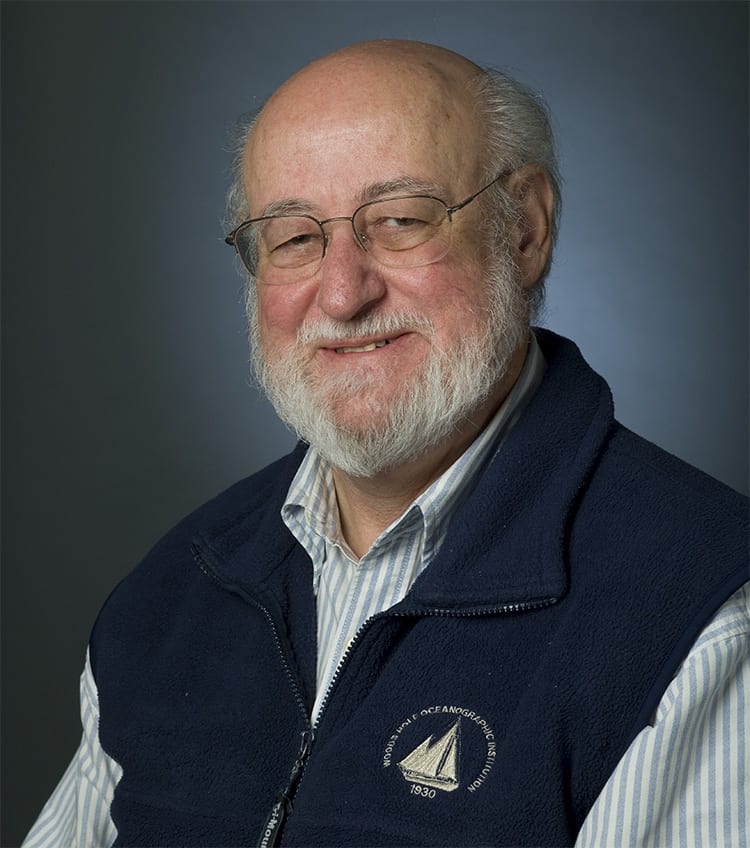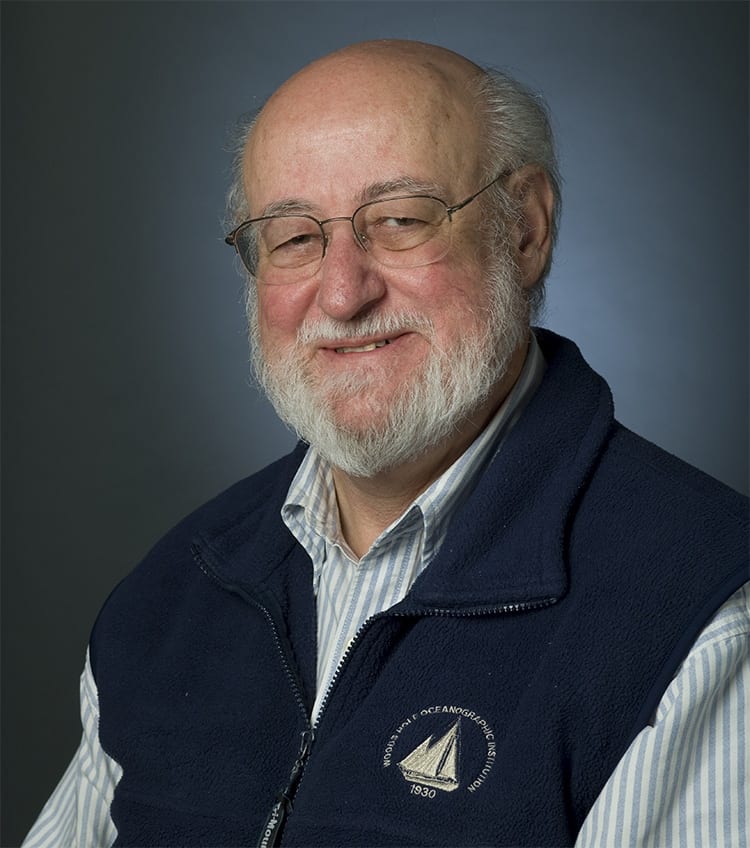John W. Farrington Named 2015 American Geophysical Union Fellow
 John W. Farrington of the Woods Hole Oceanographic Institution has been elected a fellow of the American Geophysical Union.
(Tom Kleindinst, Woods Hole Oceanographic Institution)
John W. Farrington of the Woods Hole Oceanographic Institution has been elected a fellow of the American Geophysical Union.
(Tom Kleindinst, Woods Hole Oceanographic Institution) July 29, 2015
John W. Farrington of the Woods Hole Oceanographic Institution (WHOI) has been elected a fellow of the American Geophysical Union (AGU).
Farrington, dean emeritus and an emeritus member in the Marine Chemistry and Geochemistry Department, is among 60 new fellows who will be honored for “exceptional scientific contributions and attained acknowledged eminence in the fields of Earth and space sciences.” As a symbol of accomplishment, they will each receive an official certificate at an Honors Ceremony held in December during the 2015 AGU Fall Meeting in San Francisco.
The AGU is a not-for-profit, professional, scientific organization with 62,000 members representing over 148 countries. Established in 1962, the AGU Fellows program helps identify experts who could advise, upon request, various government agencies and other organizations outside the Earth and space sciences. Fellows are nominated by their peers and chosen by a committee of existing Fellows. It is a distinguished honor bestowed upon no more than 0.1 percent of the AGU membership annually.
“I am honored, and I have been fortunate to have had many, many productive and enjoyable interactions with colleagues, coworkers, postdocs and graduate students in my career that enabled a few exciting accomplishments along the way,” said Farrington.
A native of New Bedford, Mass., Farrington completed his bachelors and masters degrees at Southeastern Massachusetts University and a doctorate at the University of Rhode Island (URI).
“John Farrington was my first graduate student arriving at the Graduate School of Oceanography in June 1968,” said James Quinn, now an emeritus professor of oceanography at URI. “He set a standard of overall excellence that was a model for all of my graduate students. Since then, John has established a reputation as a world-class scientist in the field of marine organic geochemistry. His election as an AGU fellow is well deserved, and I am very pleased that my friend and colleague of over 45 years has received this honor.”
Farrington joined WHOI in 1971 with a postdoctoral award in the laboratory of organic geochemist Max Blumer. A one-year appointment turned into a full-time job, and he rose through the ranks of the Marine Chemistry and Geochemistry Department. Within 10 years, colleagues elevated him to the rank of senior scientist.
Farrington conducted pioneering research on petroleum in the marine environment, on the mobility of contaminants such as polychlorinated biphenyls (PCBs) in seafloor sediments, and on the role of natural organic chemicals in the ocean.
“John created a diverse and high-impact portfolio of science that contributed significantly to numerous fields. His research on oil spills was an invaluable resource following the Deepwater Horizon, which occurred in 2010,” said WHOI chemist Chris Reddy, a friend and colleague.
Farrington held successive positions in the WHOI Chemistry Department for 17 years, and simultaneously served for six years as director of the WHOI Coastal Research Center. In 1988, he was appointed Michael P. Walsh Professor and Director of the Environmental Sciences Program at the University of Massachusetts, Boston. In 1990, he returned to WHOI to become associate director for Education and Dean of Graduate Studies in 1990. In 2002, Farrington was named vice president for Academic Programs and Dean.
Farrington has served on committees and panels for international, national, and local organizations, including the UNESCO-Intergovernmental Oceanographic Commission, the National Academy of Sciences, the National Science Foundation, the Office of Naval Research, the Commonwealth of Massachusetts, and the Lloyd Center for Environmental Studies. Farrington also has participated in four major field programs and 18 oceanographic cruises—eight as chief scientist.
The Woods Hole Oceanographic Institution is a private, non-profit organization on Cape Cod, Mass., dedicated to marine research, engineering, and higher education. Established in 1930 on a recommendation from the National Academy of Sciences, its primary mission is to understand the ocean and its interaction with the Earth as a whole, and to communicate a basic understanding of the ocean’s role in the changing global environment. For more information, please visit www.whoi.edu.

